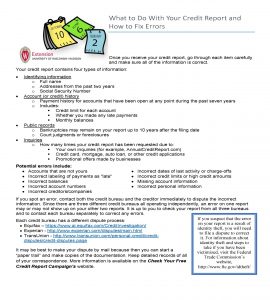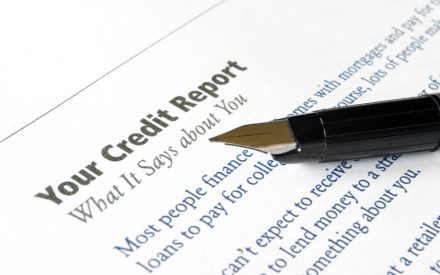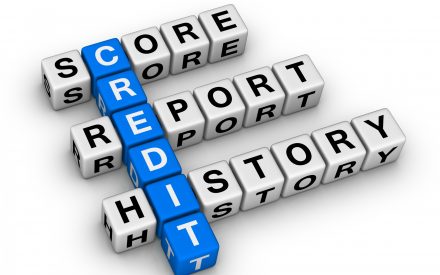Remember–it is up to you to identify and dispute errors in your credit report. The credit bureaus maintain tens of millions of reports, so they cannot verify the accuracy of the information in everybody’s reports. Inaccurate information can affect your ability to obtain an affordable loan or insurance policy, rent a house or apartment, or even gain employment. In some instances, inaccurate information can signal identity theft. When you find errors in your report, it is recommended that you contact both the credit reporting agency that supplied the report and the source of the mistake through the two steps below.
If you believe you could be the victim of identity theft or fraud, read our article about credit freezes and fraud alerts.
Contact the Credit Bureau that Provided the Report
You cannot dispute errors through AnnualCreditReport.com. Instead, you must open a dispute with the credit bureau that provided the report—Equifax, Experian, or TransUnion. Your credit report should contain basic information about how to open a dispute. Each credit bureau offers an online dispute system.
Equifax Online Dispute
Experian Online Dispute
TransUnion Credit Dispute
You can also open a dispute through the mail or by telephone. View and print this sample dispute letter. Another sample letter is available from the Federal Trade Commission—scroll to the “Correcting Errors” section. Some people recommend initiating disputes through the mail because it can be easier to maintain a paper trail (for example, by sending the dispute via certified mail and requesting return receipts). Your report should include a mailing address and phone number for opening disputes. You may also print the How to Fix Errors on Your Credit Report Guide.

Regardless of how you initiate the dispute, provide a detailed explanation of the problem and all supporting documentation.
Throughout the dispute process, keep all records, including copies of dispute letters/emails, enclosures/attachments, and a log of all contacts you make with the credit bureau and creditors. Once the credit bureau receives your dispute, it will conduct an investigation and respond within 30 days (in some cases this is extended to 45 days). When the investigation is complete, the credit bureau must give you the results in writing and provide another free report if the dispute results in any changes. This free report does not count as one of your free annual reports. The two other credit bureaus will also be notified about the correction(s). You can also request that the credit bureau send notices of corrections to anyone who received your report in the past six months, or anyone who received a copy during the past two years for employment purposes.
If the investigation does not result in changes to your report, you can request that a statement about the dispute be included in your future credit reports. You also can ask the credit bureau to provide your statement to anyone who received a copy of your report in the recent past, but they may charge for this service.
Contact the Creditor Directly About the Dispute
Another step involves contacting the company associated with the incorrect information. For example, if you believe your credit report contains incorrect information about a credit card, contact the credit card company. Again, include a detailed explanation of the problem and all supporting documentation. Your credit report should contain an address for each creditor. Keep detailed records of all correspondence.

 Check Your Free Credit Report for Signs of Fraud and Identity Theft
Check Your Free Credit Report for Signs of Fraud and Identity Theft Wisconsin Earned Income Credit
Wisconsin Earned Income Credit Check Your Free Credit Report
Check Your Free Credit Report Order Your Free Credit Report
Order Your Free Credit Report


